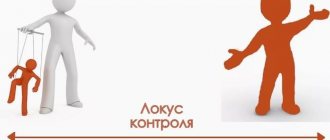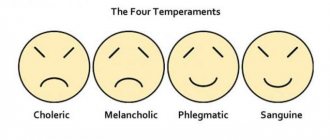Types of amnesia
There are two forms of the disease - retrograde (the patient does not remember events that occurred before the disease) and anterograde (the patient does not remember events that occurred after the onset of the disease).
Retrograde amnesia
As a rule, it does not affect events that happened long ago in the past, i.e. the most common cases of memory loss are about the last hours or weeks, less often - months. A sign of recovery is usually a decrease in the period of lost memory, but memory of the time immediately preceding the onset of the disease returns extremely rarely.
Anterograde amnesia
It is characterized by an unlimited period of lost memory, the duration of which is closely related to the duration of post-traumatic disorder of conscious activity. If anterograde memory loss develops as a consequence of traumatic brain injury, then the period of lost memory will depend on its severity.
There are other forms of amnesia, usually classified by developmental reasons, for example, a defensive form of the disease, displacing traumatic events from memory, or post-hypnotic - loss of the ability to reproduce events experienced in a state of hypnotic trance.
Researchers also identify spontaneous memory loss (the causes of which are probably simply not identified) and Korsakoff's syndrome (the inability to record current events), which is formed due to a lack of vitamin B1.
Regardless of the form of the disease, upon recovery, the ability to learn new skills and new information is the last to return, memory returns strictly chronologically (starting with the most distant memories), and the events immediately preceding the onset of the disease often are not restored.
Causes
Among the most common causes of amnesia are primarily traumatic brain injuries, emotional shock, tumors and strokes. However, the disease can also be triggered by a number of other diseases, for example, epilepsy, mental illness, degenerative brain diseases, metabolic encephalopathy, intoxication and herpetic encephalitis.
One example of psychogenic amnesia, for example, is dissociative fugue, which develops as a result of moving to a new place of residence or a complete change of environment. The patient may be completely unable to remember his past for months or even years, and he may suddenly remember and then forget certain events.
The reason for the development of another type of disease - dissociated - is a temporary loss of memory about traumatic events (loss of loved ones, severe stress, shock), but the memory of other events and skills remains in perfect order. It is interesting that with dissociated amnesia, the memory function is impaired only in the waking state, while in an altered state of consciousness (sleep, trance, hypnosis), the patient can restore all events.
Among the causes contributing to the development of Korsakoff's syndrome, alcoholism and unhealthy diet dominate. From the point of view of the anatomy of the brain, any dysfunction of its key parts can, depending on the severity of the injury, provoke the development of amnesia.
Definition
Amnesia is (in psychology the definition of the pathology of human consciousness) manifested by memory disorders and loss of memories of the circumstances of one’s life in different periods of time.
Violations are psychological in nature, manifest themselves during wars, natural disasters, the loss of a loved one, and can be the result of unhappy love. In psychology, amnesia is not caused by organic pathologies of the central nervous system; the disease develops as a result of experienced emotional suffering, which activates the protective mechanism of consciousness - the loss of negative memories. The disease often has the character of a dissociative disorder: a person subconsciously denies a fait accompli, his brain displaces unbearable experiences from consciousness.
Multiple Sclerosis - What is this Disease?
Symptoms
Often, amnesia is accompanied by other disorders of the nervous system and cognitive function of the brain, for example, pronounced thought disorders, slurred speech, inability to control attention, anxiety or depression.
Anterograde amnesia
Patients with anterograde amnesia exhibit completely normal behavior upon first meeting, but memory problems are easily identified if recent events are mentioned in conversation.
Retrograde amnesia
People suffering from retrograde amnesia have excellent memory of recent events, but have difficulty remembering events that happened a week or month ago. This form of the disease may not affect events of the distant past, so it is necessary to analyze their memories step by step. The main difficulty in identifying retrograde amnesia is the tendency in many patients to fill in memory gaps with false memories.
Korsakoff's syndrome
The presence of symptoms of Korsakoff's syndrome is indicated by the patient's disorientation in time and space, impaired attention and false memory (the patient reports fictitious events). The most resistant to forgetting information is the memory of self-identification (first name, last name, date and place of birth).
Amnesia, in which the patient does not remember distant events of his past and personal identifying data, is most likely of a psychogenic nature, i.e. caused by serious mental disorders.
Kinds
Amnesia is, in psychology, a change in human consciousness that has two forms of manifestation.
Stationary - loss of memories that occurred before the psycho-emotional crisis, lasting several months or years without signs of improvement. Regressive - memory returns gradually, the person begins to remember fragments of a past life that led to the disease. During this period, the patient must be under medical supervision. In some cases, a person cannot bear the burden of surging memories, he develops a mental disorder, has suicidal thoughts, and seeks solace in alcoholism or drug addiction.
Main types of disease:
- Retrograde amnesia
is, in psychology, a condition of a person who has lost memories that preceded the onset of the disease. At the same time, basic skills and abilities are preserved. - Anterograde amnesia
is the loss of the ability to remember recently occurring events. - The anterograde form of the disease
is a combination of two types of pathology. - Congrade
is the inability to remember information while in a coma or stupor.
Amnesia is divided into several forms:
- localized - memory loss for short periods of time;
- generalized - loss of memories for the entire period of traumatic events;
- selective - loss of certain fragments of the biography from memory.
Attention! Amnesia, as a reaction to severe stress, occurs suddenly, while the patient is awake and aware that he has lost his memory. Important personal information is forgotten.
Diagnostics
To treat amnesia, it is necessary to determine as accurately as possible the cause of the disease and all possible parallel provocations. To do this, when symptoms are identified, a comprehensive examination is necessary with mandatory consultation with a psychiatrist, narcologist and neurologist.
For in-depth diagnostics, special detailed testing of memory functions and examination by a traumatologist, infectious disease specialist, neurosurgeon and other highly specialized specialists are used. If necessary, a blood test, ECG, MRI, computed tomography and toxicological analysis are prescribed.
Prognosis and prevention
In the vast majority of cases, the patient’s memory returns completely; relapses are rare.
Basic methods of preventing pathology:
- creating favorable development conditions for the child;
- avoidance of stress and conflicts;
- healthy lifestyle without alcohol abuse;
- regular examination by a neurologist if there is a genetic predisposition to the disease;
- early contact with a doctor if signs of pathology appear.
Vulnerable and emotional people should master auto-training, relaxation, and meditation techniques that help achieve relaxation and teach them to cope with psycho-emotional experiences.
Treatment
The structure and function of human memory have not yet been fully studied, and research in this area is being actively conducted throughout the world. Modern data show that in humans, as in some animals, not only the brain, but the entire nervous system is involved in the process of memorization.
Treatment of memory loss must be carried out carefully and step by step, especially to prevent the replacement of real memories with false ones. Treatment for amnesia begins with neutralizing the underlying illness or traumatic event, as well as the factors that contributed to memory loss.
A wide range of antioxidants and neuroprotectors are actively used for drug therapy, for example, cerebrolysin, memantine, cortexin, cytoflavin, Semax, citicoline, ginkgo biloba extract, glycine and vitamins. A variety of techniques and techniques of neuropsychological rehabilitation are very effective in promoting recovery.
Amnesia, the treatment of which is complicated by the psychogenic nature of the disease or for the treatment of non-progressive forms, neuropsychological therapy is effective. If the effect of the underlying disease and other provocateurs of amnesia is eliminated, drug therapy is aimed at enhancing cholinergic transmission in the brain. For this purpose, drugs such as piracetam, gliatilin, pyritinol or encephabol, Cerebrolysin and Semax are prescribed.
Psychological theories and schools
Since the beginning of the 19th century, amnesia has been carefully studied by European doctors specializing in the field of psychoanalysis, neurology, and psychiatry. In this regard, the first psychological theories, concepts and schools regarding the psychogenic nature of memory loss begin to form.
School of Jean-Martin Charcot
Jean-Martin Charcot is a French psychiatrist and famous teacher who had a large number of students and followers, and his practice spans the period from 1845 to 1880. According to the theory of this scientist, amnesia of a psychological origin is caused by hysterical states of a person, as well as the presence of accompanying diseases of neurological origin.
Pierre Janet School
Pierre Janet is a world-famous French neurologist, psychiatrist, and psychologist, who created many scientific works devoted to the psychogenic theory of amnesia. According to the concept of this scientist, the psychological cause of memory loss is associated with an imbalance between the lower and higher mental functions of the human central nervous system. Stress, mental shock, psycho-emotional overstrain act only as a catalyst for amnesia.
Sigmund Freud School
The theory of the psychological origin of amnesia, which was put forward by Sigmund Freud, lies in the obligatory presence of previously experienced stress or severe mental trauma. On this basis, the patient develops an acute internal conflict, accompanied by regression of libido. Defense mechanisms of the psyche are developed, which lead to complete or partial loss of memory.
Description of a case of amnesia
Mr. V. is 50 years old and is accused of attempting to murder his estranged wife. They had been married for five years, and one of the reasons for the wife's leaving was violence from her husband. Mr. V has no history of seeing a psychiatrist; He has no history of any friction with the law. He attempted to kill them both by tying his wife in a car and placing a hose inside, connected to the car's exhaust pipe. He locked himself in the car with his wife and started the engine. Both lost consciousness, but then the engine stopped and neighbors discovered them. Unconscious, Mr. V. was taken to the hospital, and a computed tomography scan showed an increased amount of cerebrospinal fluid in the ventricles of the brain and an infarction in the cerebellum. He did not regain consciousness for two weeks. The wife regained consciousness quickly and suffered little from carbon monoxide poisoning. Mr. V. spent eight months in the rehabilitation department.
According to psychometric testing one year later, Mr. V. had severe short-term memory deficits. He was only able to retain information for a few minutes. He also had little memory of the previous 10-15 years, but could recall important events from the more distant past. He has clear abnormalities in the functioning of the frontal parts of the brain with damage to executive functions, in particular the ability to plan, solve problems and perform a sequence of actions. Mr. V.’s personality also changed: he became apathetic, passive and emotionally flattened.
On the advice of two psychiatrists and a neuropsychologist, Mr. V. was found unfit to participate in the trial. This was done because he was unable to understand the evidence presented in court and could not retain information in his memory, as he only remembered what he heard or read for a few minutes. He was found unable to participate to the required extent in court proceedings. During the judicial review of the facts, it was recognized that he had committed the above-mentioned act. In accordance with Art. He was placed under guardianship under section 37 of the Mental Health Act. He began to live with friends who provided full care for him.
Mr. V. was unable to participate in the trial not so much because of severe retrograde amnesia, but because of anterograde amnesia. Anterograde amnesia of this severity affects the person's ability to understand what is said and, therefore, makes him unable to raise objections. This case did not raise any doubts regarding the authenticity of anterograde amnesia. This is despite the commonly used claim that the inability to retain new information in memory is characteristic of psychogenic amnesia. It is now generally accepted that the rigid division of psychogenic and organic amnesia, which was considered correct before, is artificial.










